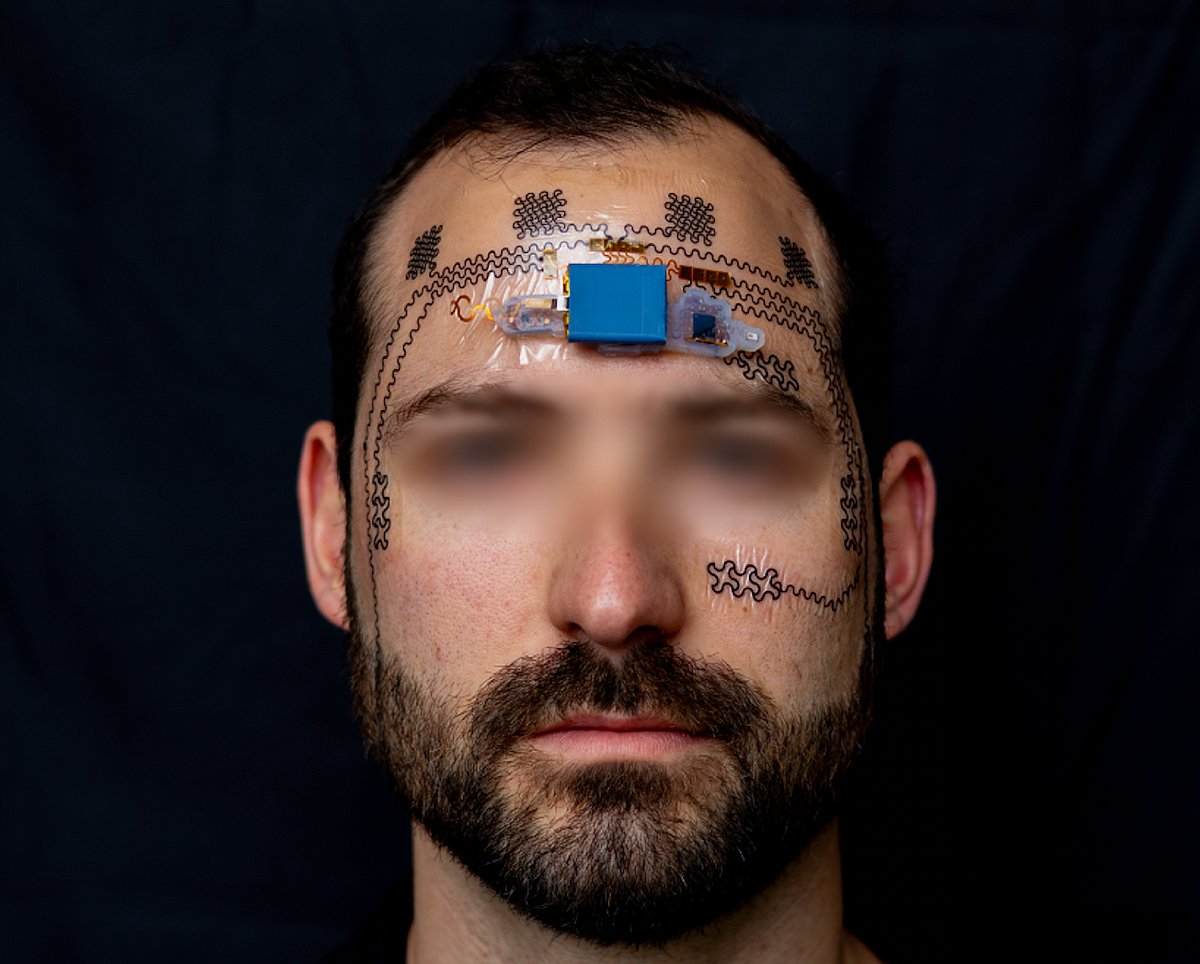
- Dennis Thompson
- Posted May 29, 2025
Burning Out? An E-Tattoo Can Track Mental Strain
Ever thought so long and hard on a problem that your forehead grew hot, your brain became frazzled and your eyes grew bleary?
A new temporary tattoo can help measure that sort of mental strain, researchers report.
The wireless forehead electronic tattoo decodes brainwaves to measure mental strain and potential burnout without bulky headgear, researchers reported today in the journal Device.
This e-tattoo could help improve safety among folks in jobs that require constant focus, like air traffic controllers or truckers, researchers said.
“We’ve long monitored workers’ physical health, tracking injuries and muscle strain,” researcher Luis Sentis, a professor of engineering at the University of Texas at Austin, said in a news release.
“Now we have the ability to monitor mental strain, which hasn’t been tracked,” he continued. “This could fundamentally change how organizations ensure the overall well-being of their workforce.”
There’s a cognitive “Goldilocks zone” for humans, where they perform best when they’re neither overwhelmed nor bored, researchers said in background notes.
“There is an optimal mental workload for optimal performance, which differs from person to person,” senior researcher Nanshu Lu, a professor of engineering at the University of Texas at Austin, said in a news release.
The wireless e-tattoo consists of a lightweight battery back and paper-thin sticker-like sensors, researcher said. The sensors feature wavy loops and coils, which allows them to stretch and conform to a person’s forehead for a clearer signal.
The tattoo analyzes electrical activity from the brain much in the way that electroencephalography (EEG) caps do — only better, researchers said.
“What’s surprising is those caps, while having more sensors for different regions of the brain, never get a perfect signal because everyone’s head shape is different,” Lu said. “We measure participants’ facial features to manufacture personalized e-tattoos to ensure that the sensors are always in the right location and receiving signals.”
Researchers tested the e-tattoo on six people who completed a memory challenge that increased in difficulty.
The tattoo captured increased theta and delta brainwave activity, which indicates cognitive demand, as well as decreasing alpha and beta brainwave activity indicating mental fatigue.
Combined, these brainwave readings can show when the brain is struggling, researchers said.
Researchers also trained an artificial intelligence (AI) program to predict a person’s mental strain based on signals from the e-tattoo. The AI was able to distinguish between different levels of mental workload and predict when a person’s brain was apt to pop.
The e-tattoo is designed to be low-cost — its chips and battery pack cost about $200, while disposable sensors are about $20 each. That’s a steal compared to the $15,000 price tag for conventional EEG equipment, researchers said.
“Being low cost makes the device accessible,” Sentis said. “One of my wishes is to turn the e-tattoo into a product we can wear at home.”
Currently, the e-tattoo only works on hairless skin, but researchers are working to combine it with ink-based sensors that can work on a hairy scalp. This will allow for full head coverage and more comprehensive brain monitoring, researchers said.
More information
The American Brain Foundation has more on the brain and stress.
SOURCE: Cell Press, news release, May 29, 2025
